THE IRON CLAW (2023)
The true story of the inseparable Von Erich brothers, who made history in the intensely competitive world of professional wrestling in the early-1980s.
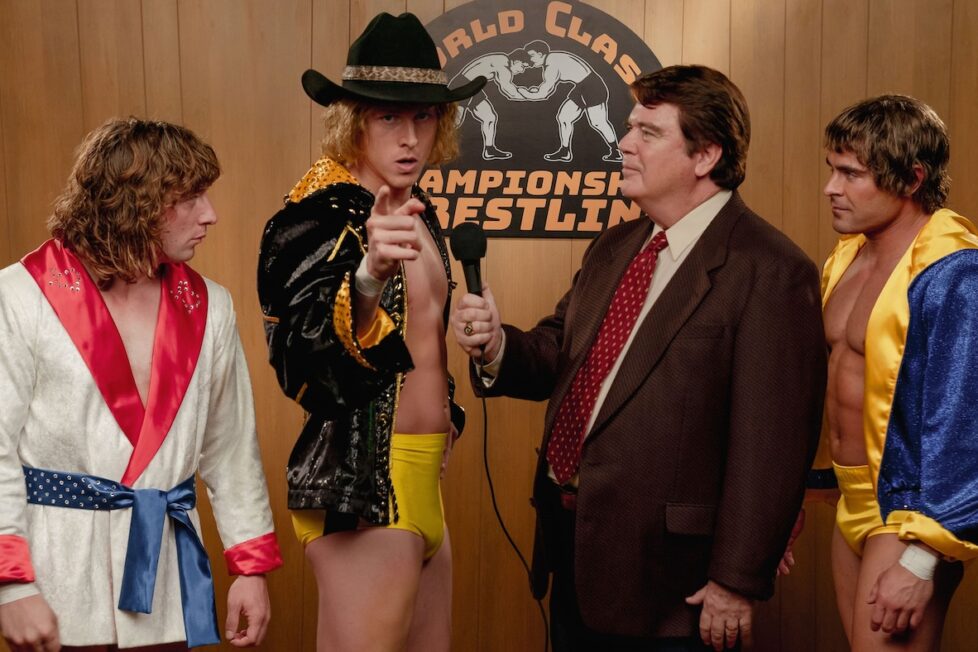
The true story of the inseparable Von Erich brothers, who made history in the intensely competitive world of professional wrestling in the early-1980s.


The world of professional wrestling is a paradox of artifice and performance mixed with immense physical sacrifice. For decades, tales of self-destruction and collateral damage have run rampant. While superstars like Dwayne “The Rock” Johnson (Red Notice) and John Cena (The Suicide Squad) emerged with their bodies and reputations relatively unscathed, countless icons failed to find success after the final bell. The tragic deaths of Owen Hart and “Rowdy” Roddy Piper (They Live) left wrestling fans shocked and mourning. The Von Erich family’s devastating fate, with its Shakespearean twists and turns, serves as a stark reminder of the dark side of this larger-than-life world.
The heartbreaking saga began in the 1950s when Jack Adkisson, the family patriarch, joined the wrestling circuit. Before Vince McMahon monopolized the sport by eradicating decades of territorial bookings, Adkisson adopted the villainous persona of Fritz Von Erich while under the National Wrestling Association (NWA). Fritz, a deliberate wrestling villain, regularly subdued his rivals with his trademark technique, “The Iron Claw”. The manoeuvre involved applying an immovable grip to the opponent’s face, exerting tight pressure on both temples and paralyzing the victim. Fritz continued to wrestle into the 1980s before transitioning into promotion and becoming the owner of World Class Championship Wrestling (WCCW). After establishing his own wrestling company, he began moulding his five children into WCCW superstars, publicly raising them within the squared circle.
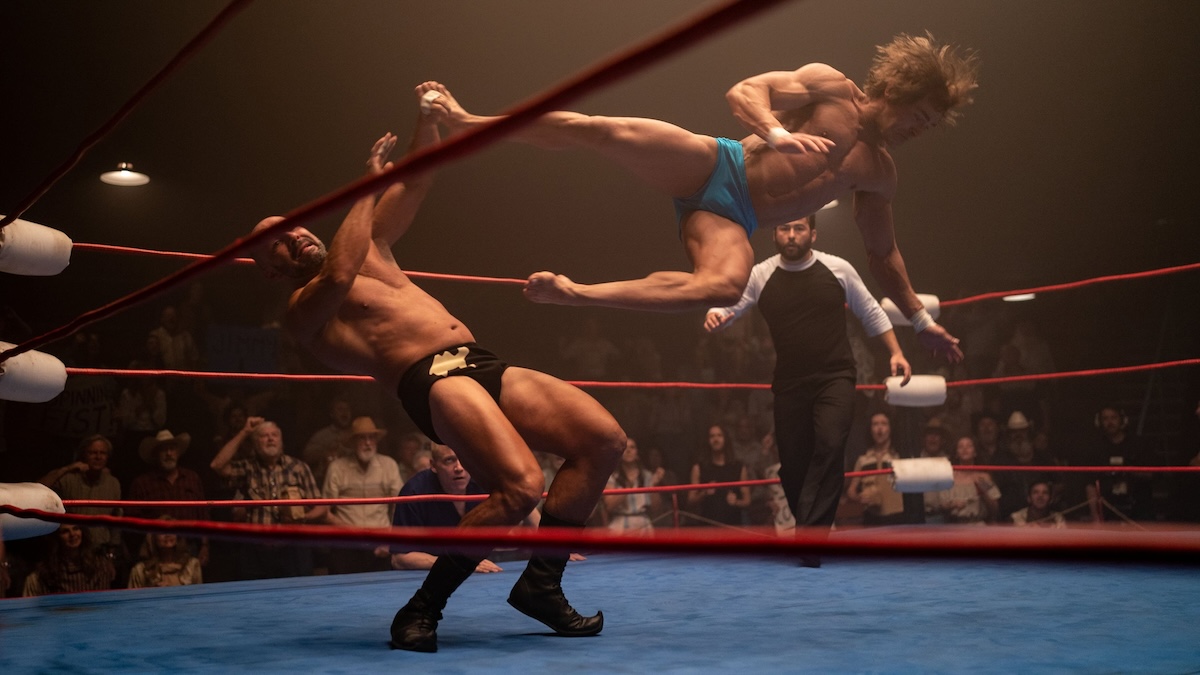
As the beloved heroes of their father’s company, the Von Erichs brothers were the quintessential boys next door. Kevin Von Erich (Zac Efron) made his wrestling debut in 1976 and climbed the ranks of WCCW. David (Harris Dickinson), captivated audiences with his athleticism and charisma, bringing a unique style to the ring. Kerry (Jeremy Allen White) achieved the most, joining Vince McMahon’s World Wrestling Federation (WWF) as Texas Tornado. The youngest son Mike (Stanley Simons), an aspiring musician, ultimately yielded to his father’s demands instead. Through beauty and skill, the Von Erichs soared under their father’s leadership. However, their glory was tragically overshadowed by immense personal suffering.
Inspired by wrestling’s most tragic story, writer-director Sean Durkin elegantly chronicles the Von Erich dynasty’s melancholic perseverance. Titled after their signature move, The Iron Claw contrasts the dazzling spectacle of wrestling with the haunting despair within the family.
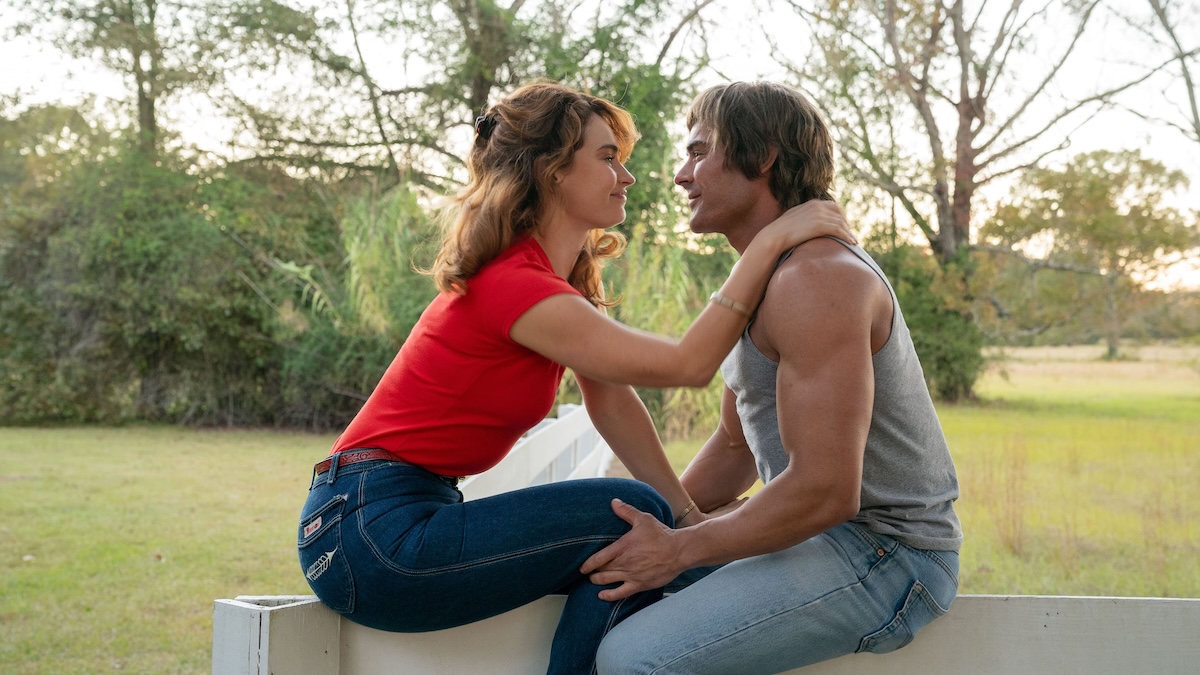
Taking place in 1979, retired wrestler Fritz Von Erich nurses long-held resentments he struggles to express. While the Von Erichs were once household names, Fritz believes he was unjustly denied the heavyweight championship. Founding his own wrestling promotion, he channels his unfulfilled aspirations onto his sons. Kevin and David are already rising stars in their local circuit, etching the family name further into wrestling history. Meanwhile, their brother Kerry trains for Olympic athletic glory, and their youngest sibling Mike pursues a music career. Though the brothers remain deeply connected, the strain in their relationship with their parents becomes increasingly evident. Fritz’s relentless expectations and harsh demeanour ultimately splinter the Von Erich family. As relentless misfortune plagues them, Kevin strives to build his own family and escape the shadow of the past.
Brought to life by a sublime ensemble, each member propels the remarkable true story with palpable intensity and tenderness. Grappling with the most difficult and multi-layered role of his career, Zac Efron (Firestarter)delivers an emotionally complex and physically demanding performance as Kevin Von Erich. Though undergoing a physical transformation almost as dramatic as Robert De Niro in Raging Bull (1980), the actor offsets his commanding physicality with a disarming kindness. Showcasing every nuance of a man living with a father who forbids any displays of autonomy, the emotional dissonance behind Efron’s eyes quietly suggests the effects of his parent’s unrealistic demands and unemotional upbringing. His timid demeanour externalizes the character’s deep internal anguish, while the quiet confusion when shown affection communicates his lingering insecurities. It’s a genuinely phenomenal performance that has been criminally overlooked during this awards season.
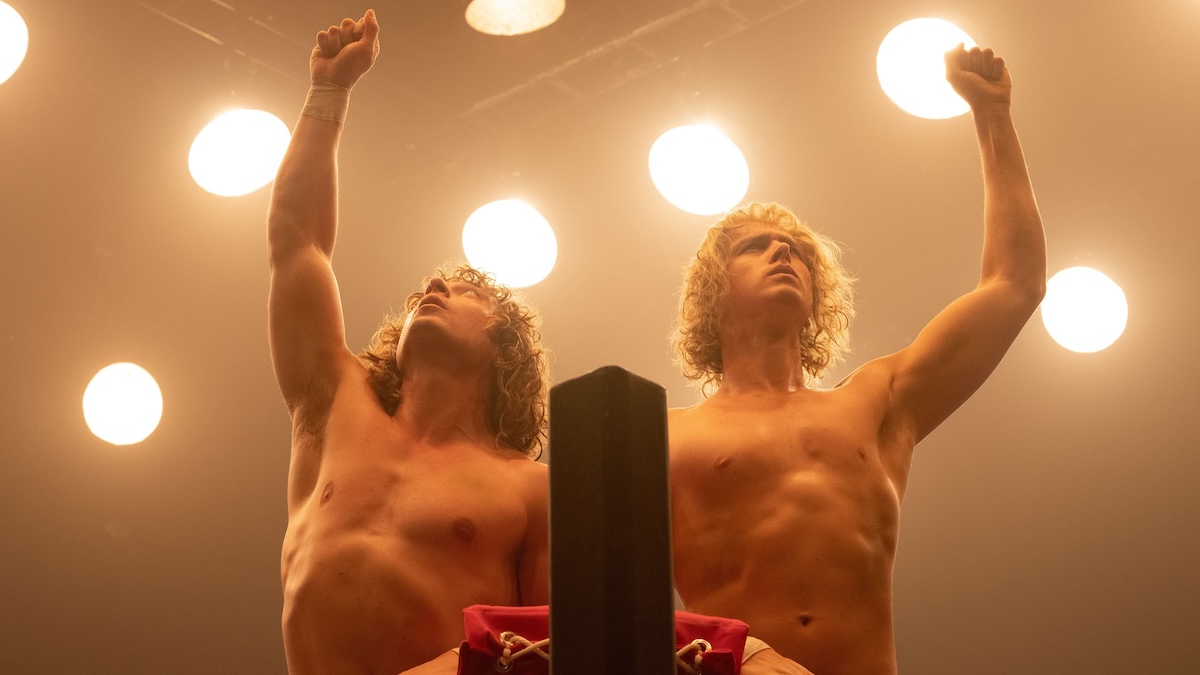
Additionally, Jeremy Allen White (The Bear), Harris Dickinson (The Souvenir—Part II), and Stanley Simons (Angelfish) form a cohesive team, brilliantly embodying brotherly chemistry. White delivers an affectionate and layered performance as Kerry, the most decorated sibling. Though lacking the physical stature to intimidate Arnold Schwarzenegger (Raw Deal) into remaining clothed, his solemn eyes and brooding intensity hint at a deep well of guilt and frustrated rage. Dickinson exudes natural charisma and carefree energy as David. Finally, Simons brings the vulnerability inherent in being the youngest son of a domineering father. As Mike, he yearns to pursue his dream of becoming a musician, but the weight of the Von Erich name forces him into a role he never desired.
Writer-director Sean Durkin has fixed his cinematic gaze on fractured identity and destructive authority throughout his young career. His debut, Martha Marcy May Marlene (2011), was an unshakeable examination of cultish devotion, while The Nest (2021) functioned as a seething takedown of a failing patriarch. The Iron Claw shares similar motifs with his first two features but delves deeper and with no apologies. Though inevitably branded a sports biopic, it transcends that label, manifesting as an anguished yet beautiful familial melodrama. Wrestling simply provides a backdrop for Durkin’s exploration of the tumultuous world of the Von Erich dynasty.
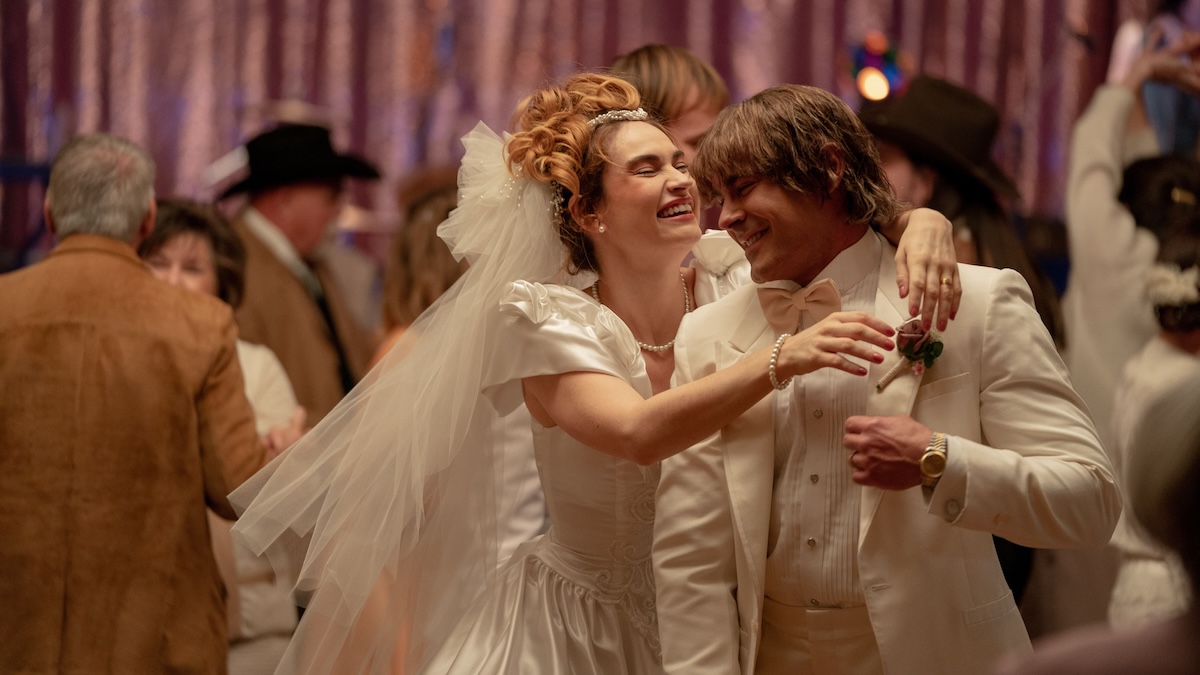
Juxtaposed against the sport’s theatricality lies a sobering examination of this dysfunctional family, plagued by the weight of unreasonable expectations and the toxic influence of a despotic father. Fritz, determined to fulfil his unfulfilled dreams through his sons’ achievements, fuels a bristling tension with his eldest son that simmers throughout the first act. This tension culminates in a superbly staged reenactment between Kevin and Harley Race (Kevin Anton). After a devastating suplex on the concrete floor threatens Kevin’s career, Fritz allows David to overtake the sibling hierarchy for a championship opportunity. However, this forced pursuit of sporting glory seemingly traps all who share the purportedly cursed Von Erich surname in an intergenerational cycle of loss.
Durkin leaves little doubt that many misfortunes, accidents, and suicides within the family stem from a preordained supernatural curse. Instead, the filmmaker poignantly reveals how the lack of parental empathy significantly contributed to the Von Erichs’ downfall. Fritz’s rigid expectations of masculinity and his forced suppression of emotional expression relentlessly suffocate his family, like the eponymous manoeuvre. He equates vulnerability with weakness and greets the deaths of his children with a stony detachment, driven by the belief that “If we’re the toughest, the strongest, the absolute best, the most successful, nothing can ever hurt us.” Similar to Sofia Coppola’s The Virgin Suicides (1999), an intense sense of melancholic inevitability permeates every frame as the audience witnesses the Von Erichs’ precarious positions under Fritz’s cruelty. Ultimately, the film is a devastating portrayal of the destructive impact of emotionally stunted parenting and how masculine ideals can both enrich and devastate a family.
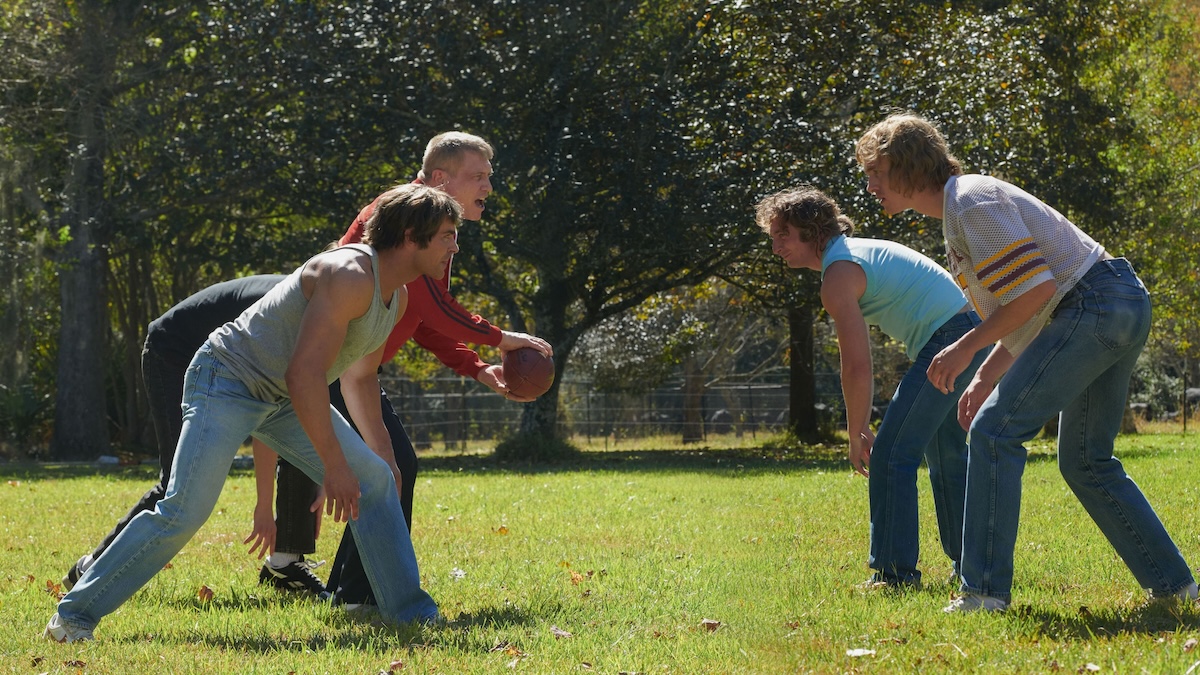
While the repeated tragedies infuse the narrative with a pervasive sadness, Durkin’s screenplay avoids lapsing into the emotionally exhausting experience it could have become. The film’s true strength lies in the fleeting moments of joy found in the wholesome bond between the Von Erich brothers. Despite the inherent rivalry simmering in their relationship, the filmmaker deftly showcases their genuine camaraderie through subtle, natural touches.
Cinematographer Mátyás Erdély (The Nest) employs a light palette, imbuing the golden Texas landscape captured during the magic hour with an ethereal quality. Sequences depicting the brothers at play with hits like “Tom Sawyer” and “Don’t Fear the Reaper” playing in the background evoke the nostalgic tenderness reminiscent of Richard Linklater (Boyhood). This creates a quietly bittersweet tone, as the palpable love and devotion only amplify the pain of their inevitable downward spiral.
Approaching the subject with nuanced devotion and detailed observation, avoiding condescension, Sean Durkin refrains from cheaply manipulating the audience with excessively violent images and melodramatic tactics. Bolstered by searingly fragile performances, The Iron Claw is a surprisingly muted meditation on a dysfunctional family plagued by unrealistic expectations and the devastating impact of toxic masculinity. Even amidst the muscle and mayhem, beautifully choreographed wrestling sequences bring unexpected entertainment value to the big screen. Yet, it’s the silence that proves even more lethal than a body slam.
USA • UK | 2023 | 132 MINUTES | 1:85:1 | COLOUR | ENGLISH

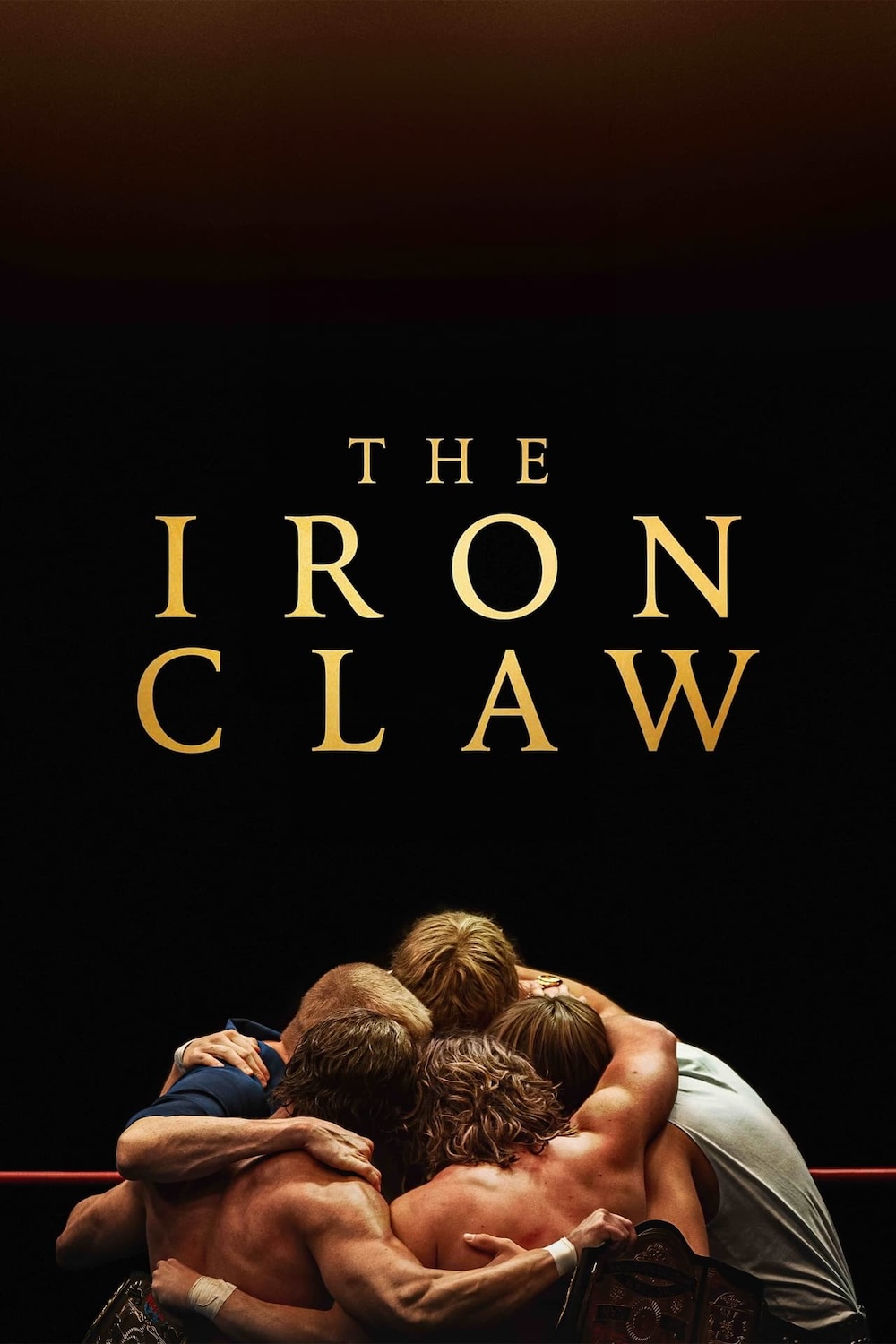
writer & director: Sean Durkin.
starring: Zac Efron, Jeremy Allen White, Harris Dickinson, Maura Tierney, Holt McCallany & Stanley Simons.
